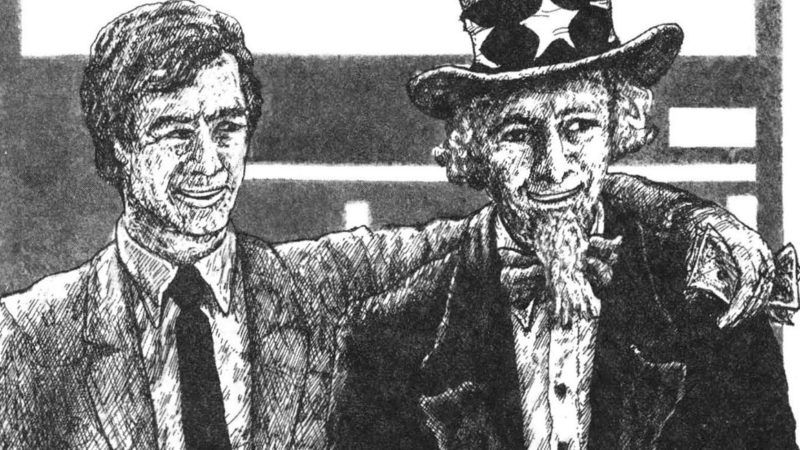From the Archives: June 2020
Excerpts from Reason's vaults

15 Years Ago
June 2005
"There are fewer than 1 million professional journalists in this country. There are an estimated 8 million bloggers—and potentially 280 million more. Extending a limited profession-based privilege, one otherwise confined to priests, lawyers, and therapists, to the entire population could make the whole nation impervious to court orders. But limiting the privilege puts the government in the dicey position of deciding who is and who isn't a journalist."
Matt Welch
"Who Gets To Play Journalist?"
25 Years Ago
June 1995
"And yet, it's hard to find a 'libertarian' who is satisfied with the name, which only came into common usage in the late 1960s. The list of complaints is a long one—it's clumsy, it's associated with kooky causes, it's obscure, it's clichéd—but it all adds up to the simple fact that libertarian just doesn't cut it. If it's true that 'a good name is better than precious ointment'—and the Book of Ecclesiastes, the only book in the Bible with a #1 hit ('Turn! Turn! Turn!') under its belt, says it is—then we libertarians must admit that we're stuck with the equivalent of Vick's Vapo-Rub: It gets the job done, but it pretty much stinks up the joint."
Nick Gillespie
"Liberating Liberal"
40 Years Ago
June 1980
"The sound business practice involved here is to leverage your equity position through maximum borrowing, which carries an element of risk. Depending upon when you were born, or just how much 'remember the depression' philosophy your parents may have showered upon you, this could cut across your grain of thinking. But to get an economic leg up on inflation, you must become a part of our free-enterprise system. To accomplish this feat, to join the group, you will need to pay for your ticket on the way in. There are only three legitimate ways to acquire these means: earn and accumulate it (the depression-era legacy), inherit it (the lucky way), or borrow it (and that's what we're talking about here)."
Robert Haisman
"Make the IRS Your Partner"
"The Carter crackdown is on us, the consumers—strongly implying, of course, that our hedonism is responsible for inflation. Credit cards—that marvelous convenience of capitalism that enables us to enjoy first and pay later—have, like installment credit since the 1920s, long been the bane of Christian moralists. Now they are to be curbed and made more costly. Foreign oil is to be restricted once again, on the rather odd reasoning that inflation will be combated because the higher price will restrict consumption. On that reasoning, of course, we should hope for ever higher prices, unto the very stratosphere, as a method of 'curbing inflation.' Money market mutual funds, which, like credit cards, have nothing to do with generating inflation but are marvelous ways for ordinary people to try to catch up with inflation and not get wiped out, are also to be cracked down on and made far more costly. It is almost as if [President Jimmy] Carter looked around and discovered two dramatic recent innovations by which the lives of ordinary consumers and investors have been made more tolerable—credit cards and money market mutuals—and determined to punish us grievously for these sins."
Murray Rothbard
"Carter, Pain, and Inflation"
50 Years Ago
June 1970
"It is no wonder that people scream that if the [Food and Drug Administration] were to be abolished we'd all be poisoned: if people were to continue to use so little caution and intelligence in selecting drugs and physicians to advise them, that could very well happen. Any industry needs an incentive for excellence if the thugs are not to take over. The FDA provides an incentive based on fear, via a government-backed gun. If the FDA were abolished, physicians and consumers, by means of testing labs and computerized information systems, could provide an incentive based on reputation. Doctors and patients would at last be free to make their own decisions about what risks to take in using a particular drug, free of government coercion. And one's full ownership of his body would advance another step towards being a legal reality."
Lynn Kinsky
"The Impact of FDA Regulation on Drug Research in America Today"
